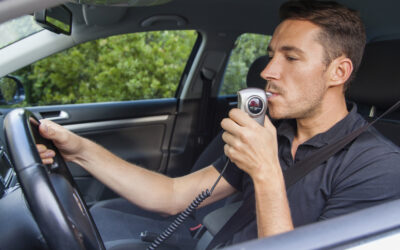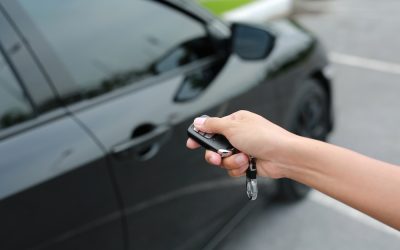California Health and Safety Code (HSC) Section 11360 makes it illegal to sell, give away, import, or transport marijuana for sale without proper licensing. While personal use and possession of small amounts of marijuana are legal for adults 21 and over under California law, selling or distributing marijuana without a state license remains a crime.
A first offense may be charged as a misdemeanor, with penalties including up to 6 months in jail and a fine of up to $500. However, more serious cases can lead to felony charges and longer prison sentences. After reviewing your case, an experienced Los Angeles lawyer will tell you more about how the California Health and Safety Codes apply to your case.
What Is the CA Health and Safety Code Section 11360?
California Health and Safety Code Section 11360 makes it illegal to sell or distribute marijuana without proper authorization. The law specifically prohibits several actions related to marijuana when done without a license.
Section 11360 HSC covers the unlawful sale, giving away, importation, or transportation of marijuana with the intent to sell. It applies to both dried cannabis flowers and cannabis products. The key focus of this law is to regulate who can legally handle marijuana for commercial purposes.
Activities prohibited under the statute include:
- Selling: You cannot sell marijuana unless you have a state license to operate a cannabis business.
- Giving away: Giving marijuana to another person, even for free, is illegal if it’s done outside of legal limits or without proper licensing.
- Importing into the state: Bringing marijuana into California from another state is against the law, even if marijuana is legal in both states.
- Transporting marijuana for sale: Transporting marijuana with the intent to sell it, especially over long distances or in large quantities, is a violation unless you are a licensed distributor.
Legal Exception: Licensed Cannabis Businesses
Businesses that are properly licensed under California’s cannabis regulations are legally allowed to sell, give away (within certain guidelines), import, and transport marijuana. These businesses must follow strict rules and hold valid licenses issued by the state. Without a license, any of the activities listed above are considered illegal under Section 11360.
Misdemeanor vs. Felony Charges
Violations of California Health and Safety Code Section 11360 can be charged as either a misdemeanor or a felony, depending on the details of the case. The severity of the charge usually depends on the amount of marijuana involved, the person’s criminal history, and whether any aggravating factors are present.
When a Violation Is Considered a Misdemeanor
In many cases, a violation of Section 11360 is treated as a misdemeanor, especially if it’s a first offense or involves a small amount of marijuana.
A violation may be considered a misdemeanor under the following circumstances:
- First-time offenders: If you’ve never been in trouble for drug-related crimes before, and you’re caught selling or giving away marijuana without a license, you may be charged with a misdemeanor.
- Small quantities: If the amount of marijuana is minor and clearly not meant for large-scale distribution, the court is more likely to treat it as a misdemeanor.
When a Violation Becomes a Felony
More serious violations can lead to felony charges, which carry harsher penalties:
- Prior serious convictions: If you have previous convictions for violent felonies, sex offenses, or serious drug crimes, a new charge under Section 11360 can be filed as a felony.
- Involving minors: Selling or giving marijuana to someone under 18 years old is considered especially serious and is automatically a felony.
- Large-scale operations or trafficking: If the case involves large quantities of marijuana, cross-state trafficking, or organized distribution, it may be charged as a felony due to the scale of the offense.
Penalties for Violating Section 11360
The penalties for violating California Health and Safety Code Section 11360 depend on whether the offense is charged as a misdemeanor or a felony. The law treats minor, first-time violations more lightly, but serious offenses can lead to harsh consequences.
Misdemeanor Penalties
For less serious violations, Section 11360 may be charged as a misdemeanor. The penalties you can get for a misdemeanor are:
- Jail time: A misdemeanor conviction can result in up to 6 months in county jail.
- Fines: The court may also impose a fine of up to $500.
Felony Penalties
More serious violations, such as those involving minors or large-scale sales, can lead to felony charges. Even if someone avoids prison, a conviction can affect job opportunities, housing, and immigration status.
Penalties for felony charges include:
- Prison time: A felony conviction under Section 11360 can result in up to 4 years in state prison, depending on the facts of the case.
- Additional consequences: Felony convictions can lead to probation, mandatory drug counseling, a permanent criminal record, and the loss of certain civil rights, such as the right to own firearms or vote while incarcerated.
Legal Defenses to Section 11360 Charges
If you are charged under California Health and Safety Code Section 11360, several legal defenses may help you fight the charges. The right defense depends on the facts of your case, but here are some common ones:
Lack of Intent to Sell
You can’t be convicted of violating Section 11360 if you didn’t intend to sell or distribute marijuana. Simply having marijuana in your possession is not enough to prove intent. If there’s no clear evidence (like scales, packaging, or large amounts), prosecutors may not be able to show that you planned to sell it.
Lawful Possession or Gifting Within Legal Limits
California law allows adults 21 and over to possess and share small amounts of marijuana for personal use. Giving up to 28.5 grams of marijuana (or 8 grams of concentrated cannabis) to another adult without payment is legal. If your actions fall within these limits, you may not have broken the law.
Entrapment or Unlawful Search and Seizure
If law enforcement pressured you into committing a crime you wouldn’t have done on your own; you may have an entrapment defense. Also, if police searched you, your car, or your home without a valid warrant or probable cause, any evidence they found might be thrown out. This could weaken the case against you or lead to a dismissal.
A Lawyer Can Help With Your CA Health and Safety Code Section 11360 Charges
California Health and Safety Code Section 11360 HSC makes it illegal to sell, give away, or transport marijuana for sale without a license. While this law is separate from DUI offenses, a DUI lawyer in Los Angeles may still be able to help if you’re facing charges under Section 11360.
Many DUI lawyers are experienced in handling drug-related cases. They can challenge how the evidence was collected, whether your rights were violated, or if the prosecution lacks proof of intent to sell.
At Los Angeles DUI Lawyer, we match you with experienced attorneys who will break down the details of your case clearly, helping you understand your options.







